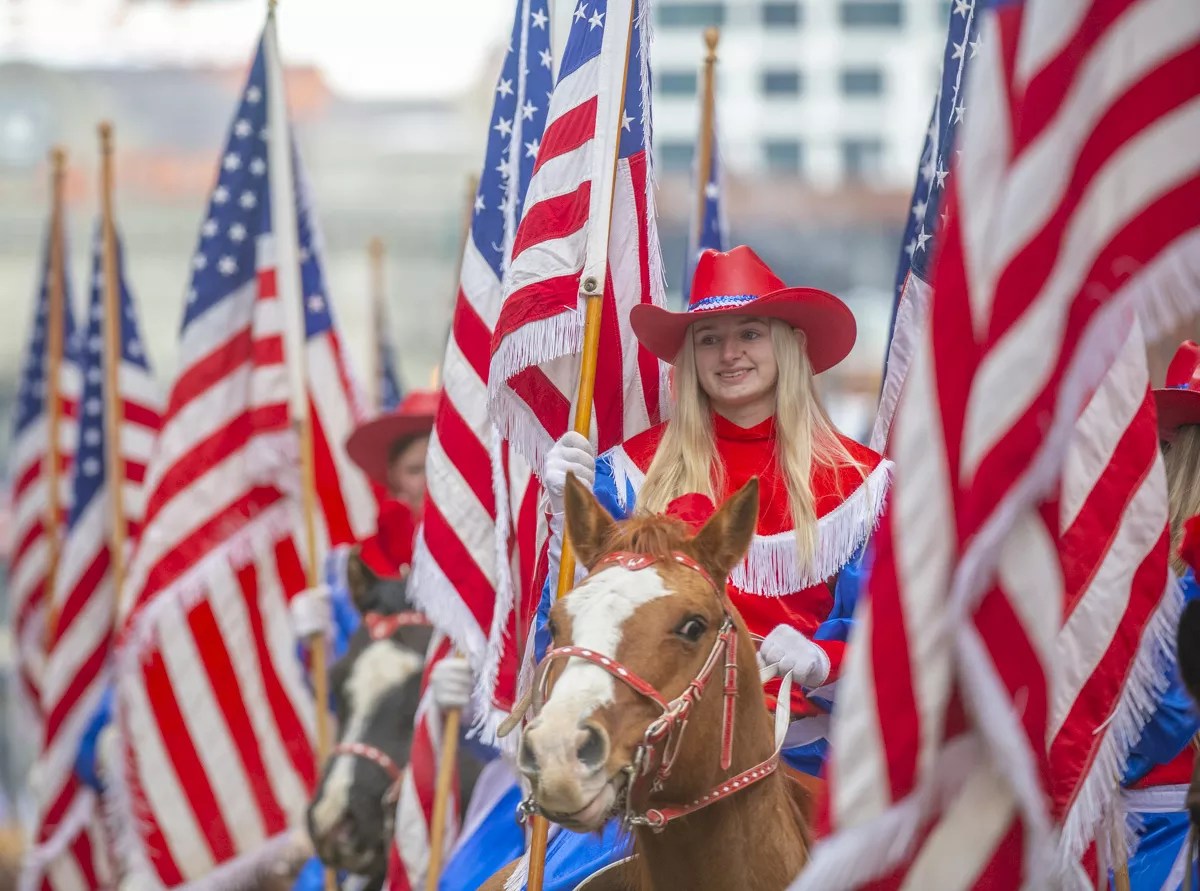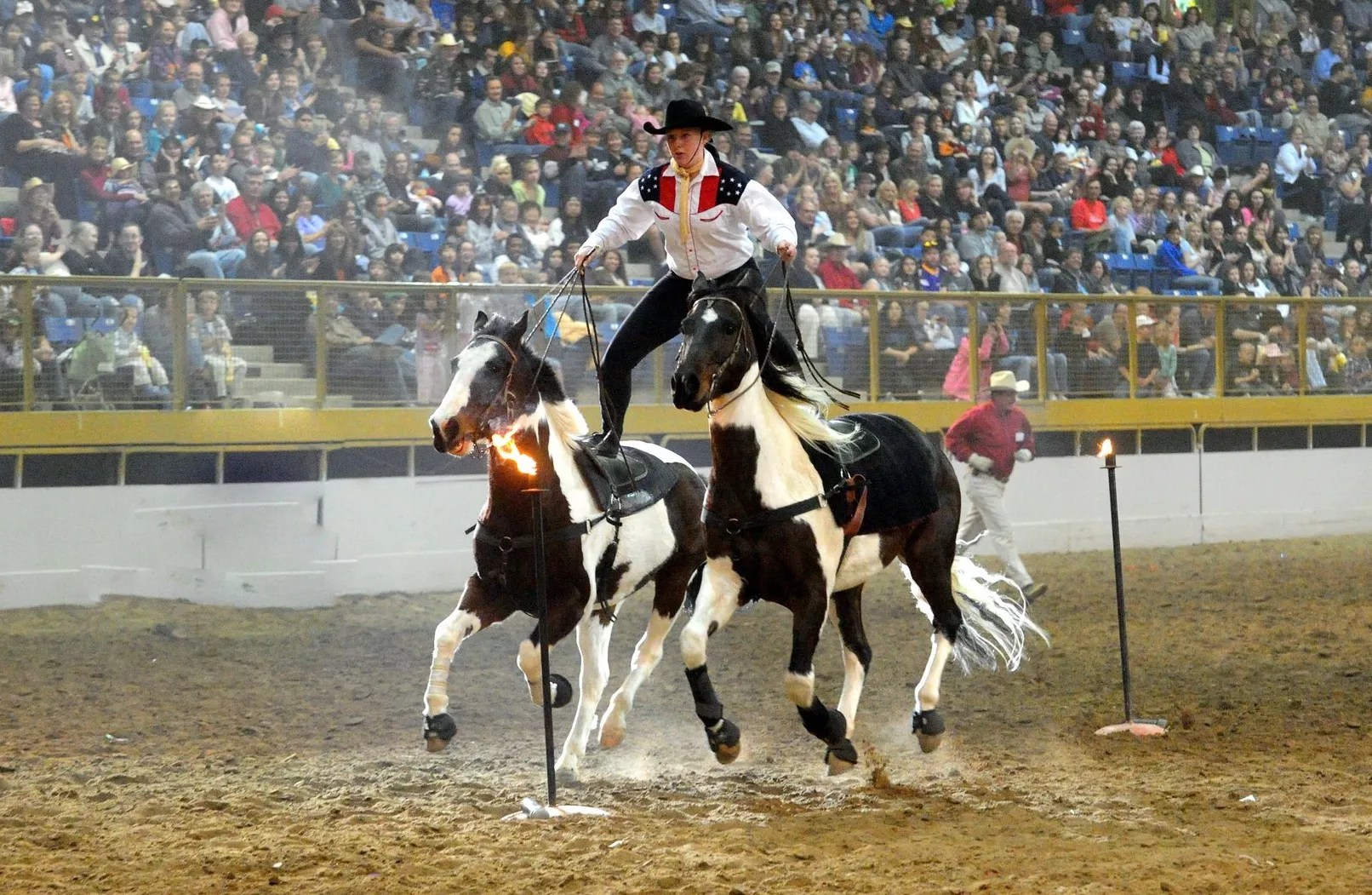
Evan Semón

Audio By Carbonatix
Around twenty acres of the Jefferson County Fairgrounds could soon belong to the Westernaires, but some residents are calling bull.
In a January 5 Jefferson County Open Space Advisory Committee meeting, several residents expressed concerns about a proposal that would give the Westernaires, a local nonprofit dedicated to youth horsemanship, land that currently belongs to the county at the Jefferson County Fairgrounds, 15200 West Sixth Avenue in Golden.
“I’m here on my own as a citizen of Jefferson County concerned about open space, and particularly concerned about any action that transforms open space from open space to something else,” Frank Hutfless, a former attorney for the county, said at the meeting. “Once this property gets into the hands of the Westernaires, which is a private nonprofit, it can be anything.”
The specific property the county is considering giving to the nonprofit is off Ellsworth Avenue and Indiana Street; if it were granted to the Westernaires, it would come with conditions that could address Hutfless’s worries.
This wouldn’t be the first time the county gave land to the organization. Jeffco acquired seventy acres for the fairgrounds in 1951, transferring four of those acres to the Westernaires in 1964 and another 1.4 acres in 2001. The 20.7 acres it is currently considering transferring were purchased in 1983 for use by the Westernaires with $1.4 million of Jefferson County Open Space funds, according to Hillary Merritt, deputy director of open space for the county.
The Westernaires and Jefferson County Open Space have held a declaration of covenants and reciprocal easement agreement since 1998, when the parties stipulated that the nonprofit could use space at the fairgrounds for youth riding arenas, horse pasturing and encouragement of leadership through horsemanship. Under that agreement, the county owns the land, but the Westernaires are its primary users. Now the county wants to make the Westernaires the owner, as well.
That’s partly because in 2019, the property had problems with excess manure that was running off into the drainage areas. The county worked with the Colorado Department of Public Health & Environment to improve the tension basin and fix the runoff problem, which cost about $100,000 and was completed in 2021.
“At the same time, the county began discussions with the Westernaires about transferring the property and terminating the declaration,” Merritt said.

The Westernaires are known for their focus on youth horsemanship and leadership training.
Courtesy Westernaires
Under the land transfer agreement, the Westernaires would be responsible for the cost of future manure-related improvements and would enter a new restrictive covenant stipulating that the space be used for open space-related purposes.
Alex Plotkin, who spoke during public comment, said he was worried that the county is setting the Westernaires up to fail by saddling the organization with costly health issues to deal with.
“Maybe there is another way to accommodate the situation. Maybe something can be done with mitigating manure, or maybe some sort of a different arrangement that we’ve made where this land is maintained within the control of the county and public works,” Plotkin said.
Merritt clarified that the county is currently liable for damages and problems at the property even when it isn’t the one overseeing activity there. This arrangement would transfer liability while still retaining guarantees that the property can’t be used for other purposes or sold without county input.
“The restrictive covenant allows us to continue the uses of the property for parks and open-space purposes, horsemanship – things that are already going on there – but it doesn’t automatically revert back to the county if those uses were to cease in the future,” Merritt said, noting that the county usually transfers land to cities or districts with a provision that the land reverts to the county if those entities don’t want it anymore. In this case, the county may not want the property back should the Westernaires decide that the nonprofit no longer wants it.
If the Westernaires ceased to operate or didn’t want to continue using the property, the county would have to approve of any sale and would receive $1.1 million or 70 percent of fair market value, whichever is greater. In the meantime, the restrictive covenant agreement would require that the property be used for open-space, park and recreational purposes.
A spokesperson for the Westernaires said that the organization, which didn’t send a representative to speak at the meeting, can’t comment on the proposal at this time. Prior to public comment, the committe had gone into executive session to discuss legal issues.
Hutfless said he is worried about the tax implications of such a transfer and fears for a future sale of the land for commercial development, even with the requirement of county approval. Meanwhile, resident Linda Auburn questioned whether the proposal is legal. “When, and to who, will this board stop selling and/or giving away open-space property?” she said.
But other commenters noted that the Westernaires organization has had a strong impact on the culture of the state over its long history, requiring children who participate to do well in school and stay out of trouble.
“I believe that is something that we need to preserve as a culture,” said Joan Poston. However, Poston added that it should be part of the county’s open-space program, rather than granting the land to a private organization outright.
Shawn Heggarty agreed, noting that there are other organizations and groups contributing to the culture of the area that should also be able to use the fairgrounds. “This is the center point for all the cultural heritage, or agricultural background,” Heggarty said. “Trying to keep this together is a critical piece.”
Tom Hoby, director of the county’s Parks and Open Space Division, spoke after public comment, saying that the division has conveyed about 10,000 acres of land to cities, towns and park districts at no cost to those entities, so this is consistent with its policy.
“If they are not used for park and open-space purposes, they revert back to the county, no matter how much or how little investment we make in those properties,” he noted. “In this case, we’re using a little bit different tool because we are looking at conveying it to a nonprofit, but it essentially does the same thing.”
Plus, he added, the Westernaires have always used the property, so the county isn’t really losing anything.
The Open Space Advisory Board voted to recommend the resolution; it will now be considered by the Jefferson County Board of Commissioners, which is in charge of making the final decision. A representative from Jefferson County Open Space said there is no timeline yet for when the board will take up the issue.